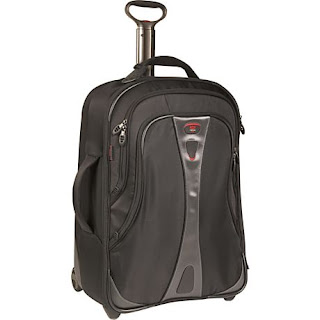Too many choices drive us nuts
 A story came from WebMD explains that “Too many choices exhaust the brain.” According to the story,
A story came from WebMD explains that “Too many choices exhaust the brain.” According to the story,
Study author Kathleen D. Vohs, PhD, of the University of Minnesota’s marketing department, and researchers from several other universities have determined that making choices, as opposed to just thinking about options, can be mentally draining. Those with too many choices — good or bad — have trouble remembering to take their medicine and staying focused on everyday tasks.
I can attest to the frustration of having too many choices. My family knows that shopping is difficult for me. If there are just a few choices, all goes well: the purchase is quick, and there’s little buyer’s remorse. But if there are too many, the fear that “I’m going to make the wrong choice and regret it later” becomes overwhelming.
Once upon a time, shopping decisions would be so stressful that I’d frequently walk out of stores empty-handed. Today, my strategy is to intentionally (and sometimes arbitrarily) limit my choices to make the process manageable. Two personal examples:
1. In January, my son wanted to buy a buffed-up Windows PC for gaming. After browsing several manufacturers’ sites, we arbitrarily decided to shop only for a Dell PC, and not try to do comparisons against multiple companies. Even there, however, the number of Dell desktop models was overwhelming, and we both found it hard to know whether we should get a Dell XPS or a Dell Inspiron. The company’s textual description doesn’t help:
XPS: Dell’s premier consumer desktops feature the latest technology and incredible value. Sleek and distinctive styling sets XPS PCs apart. Every XPS PC is designed to perform and built to last with premium components and materials. XPS Owners receive first class service and support.
Inspiron: Matching technology to your needs, powering your lifestyle today and tomorrow. These customizable desktops are a smart choice, balancing rich functionality, contemporary style, reliability and the value you’ve come to expect from Dell.
Gosh, do I want “latest technology and incredible value” or “matching technology to my needs”? Tough choice!
Even within those lines, there are so many choices. Do I want the XPS 210? 420? 630? 720? 730? Inspiron 530? 530S? And to balance value against great gaming, do we want the Intel Core 2 Extreme, Core 2 Quad, Core 2 Duo, Pentium Dual-Core or Celeron? Argh!
We ended up with a Dell XPS 420, with a Core 2 Quad processor, because it sounded good.
2. For a recent trip, we needed a new suitcase, slightly larger than a 22-inch rollaboard. I went to the Macy’s store at Union Square in San Francisco, which had a good selection… a too-good selection, in fact. So, again, the decision was made to arbitrarily limit my choices to one particular brand with a good reputation (Tumi), vs. trying to compare hundreds of bags from dozens of brands. But even there, there were so many choices and sizes, making a decision took ages. The final choice was the 24″ Tumi T-Tech Pulse.
To quote from the WebMD story again,
The study provides evidence that it is the act of making a choice, not weighing your options, that is mentally exhausting. “There is a significant shift in the mental programming that is made at the time of choosing, whether the person acts on it at that time or sometime in the future. Therefore, simply the act of choosing can cause mental fatigue,” Vohs says in a news release. “Making choices can be difficult and taxing, and there is a personal price to choosing.”
Barry Schwartz’s “The Paradox of Choice” has really helped me handle choices better. I now realize that the cost of attempting to make the absolute best decisions is often too great. Better to relax and settle for making “good enough” choices (like get a fine desktop PC or a nice piece of luggage), instead of agonizing over making an optimal decision. It’s a wonderful book, and is highly recommended.
